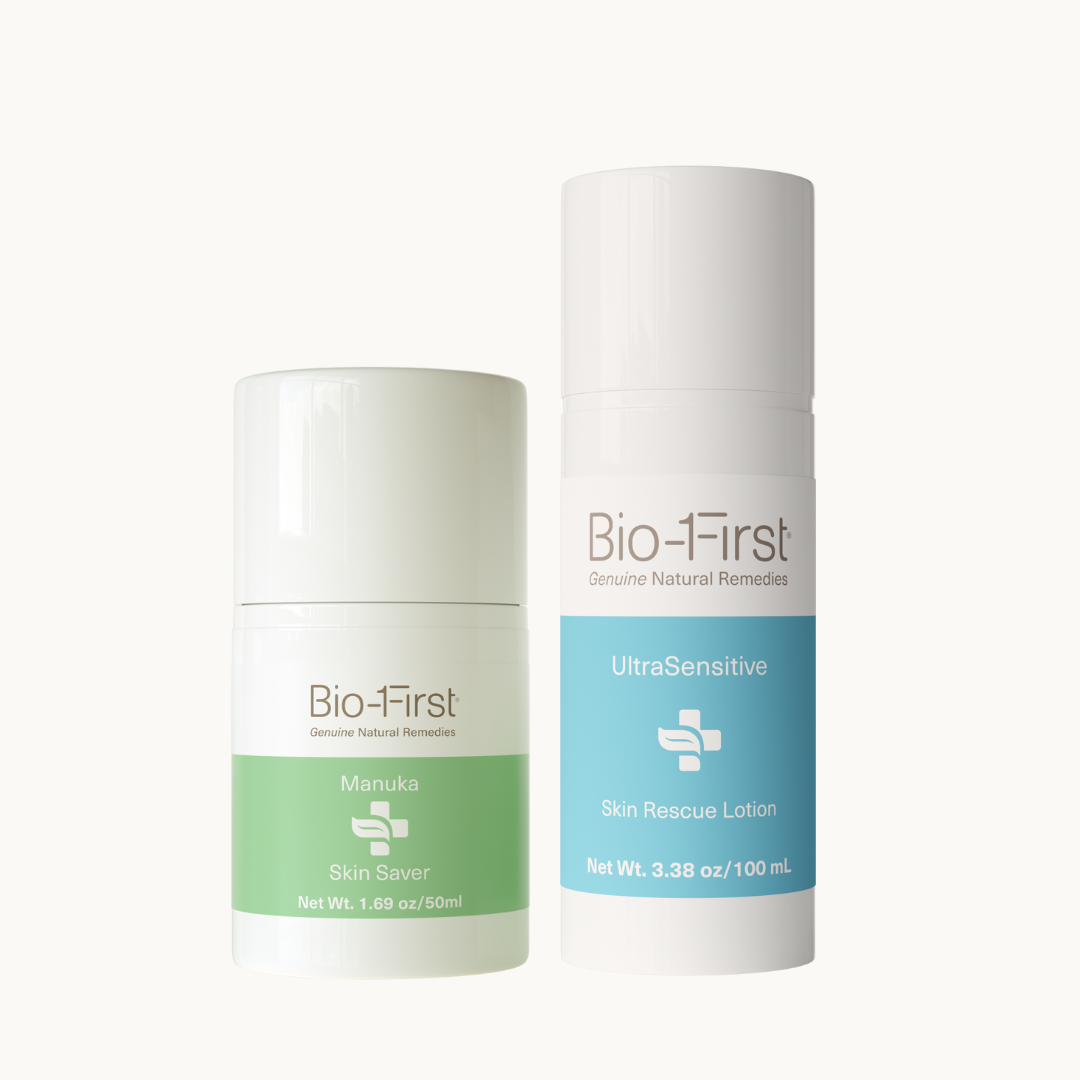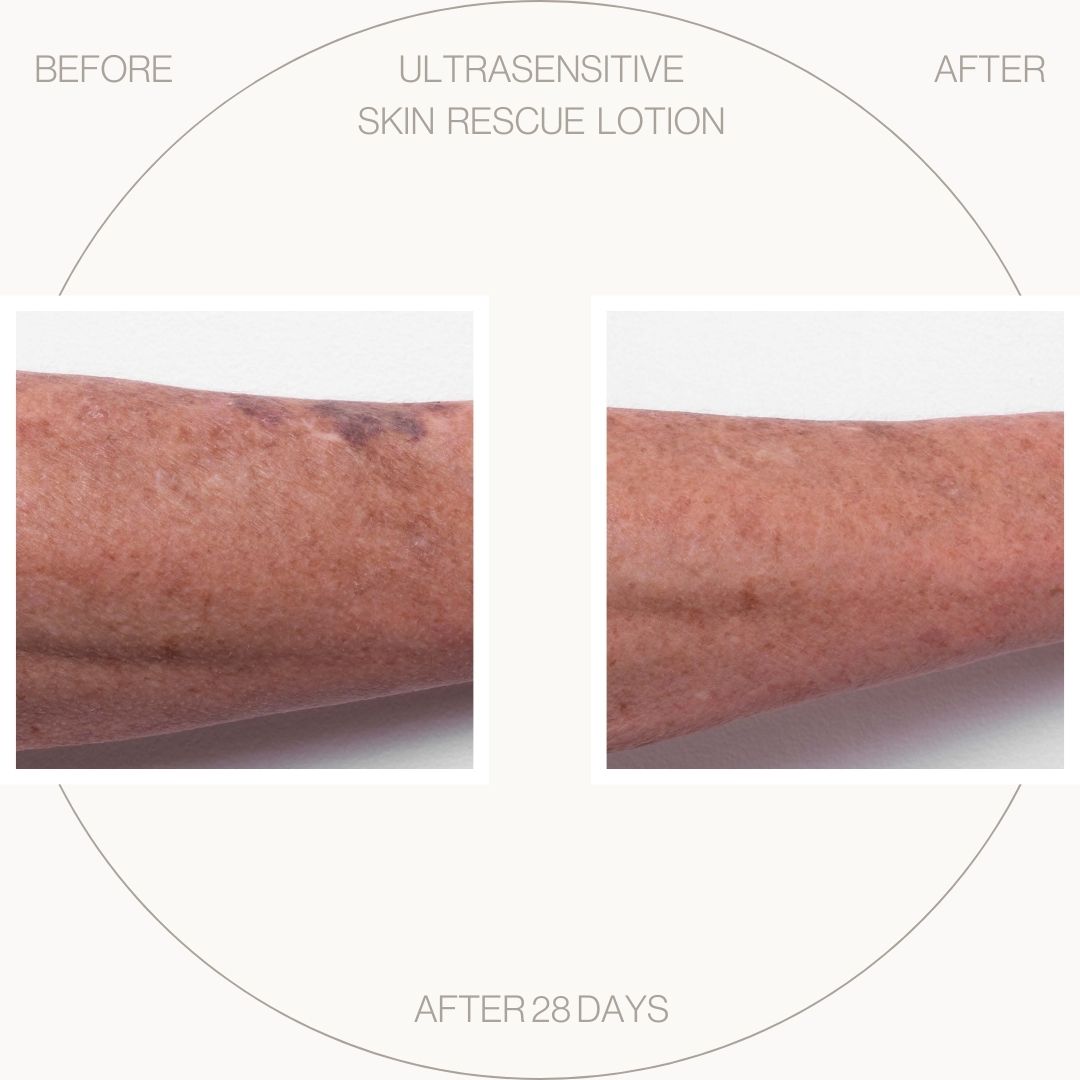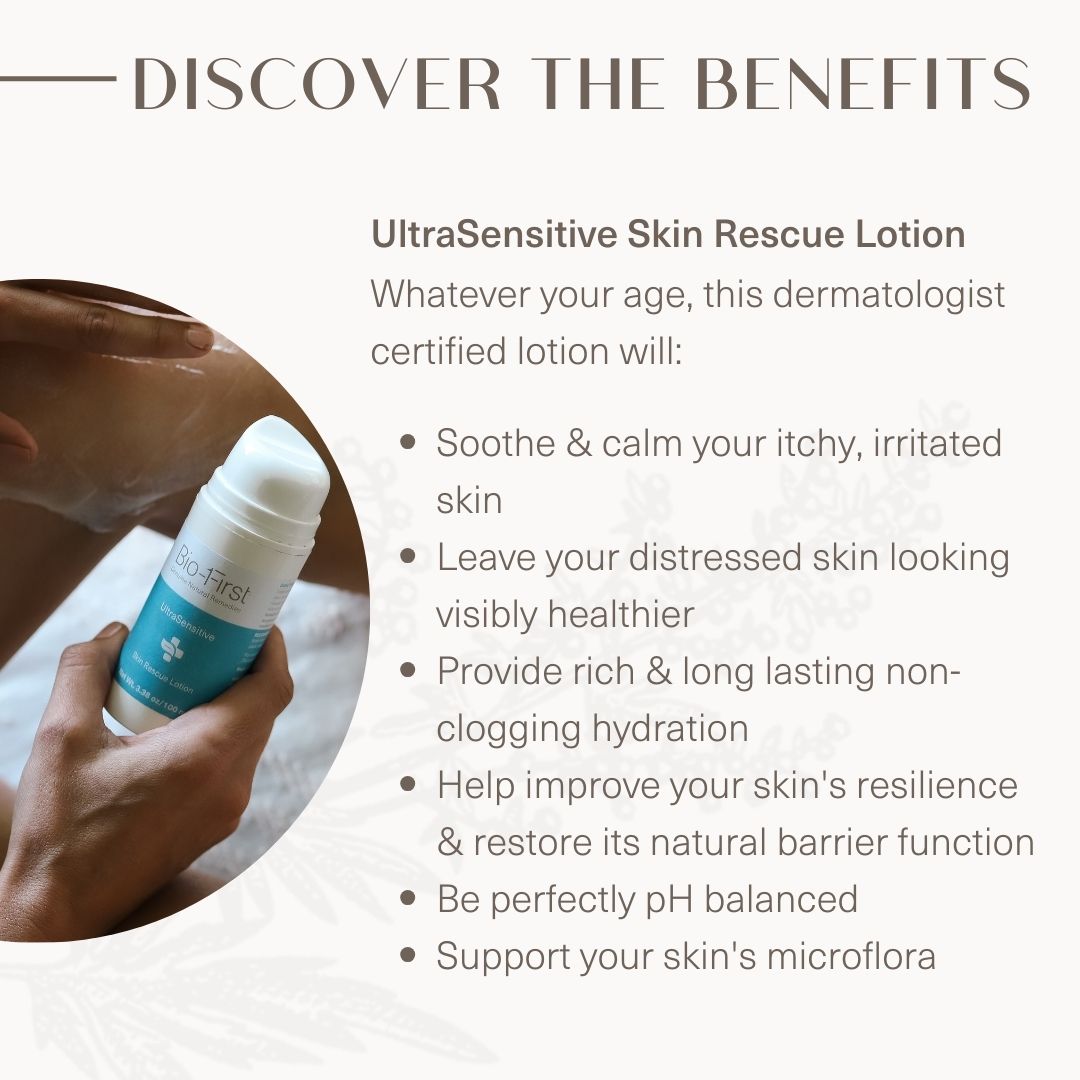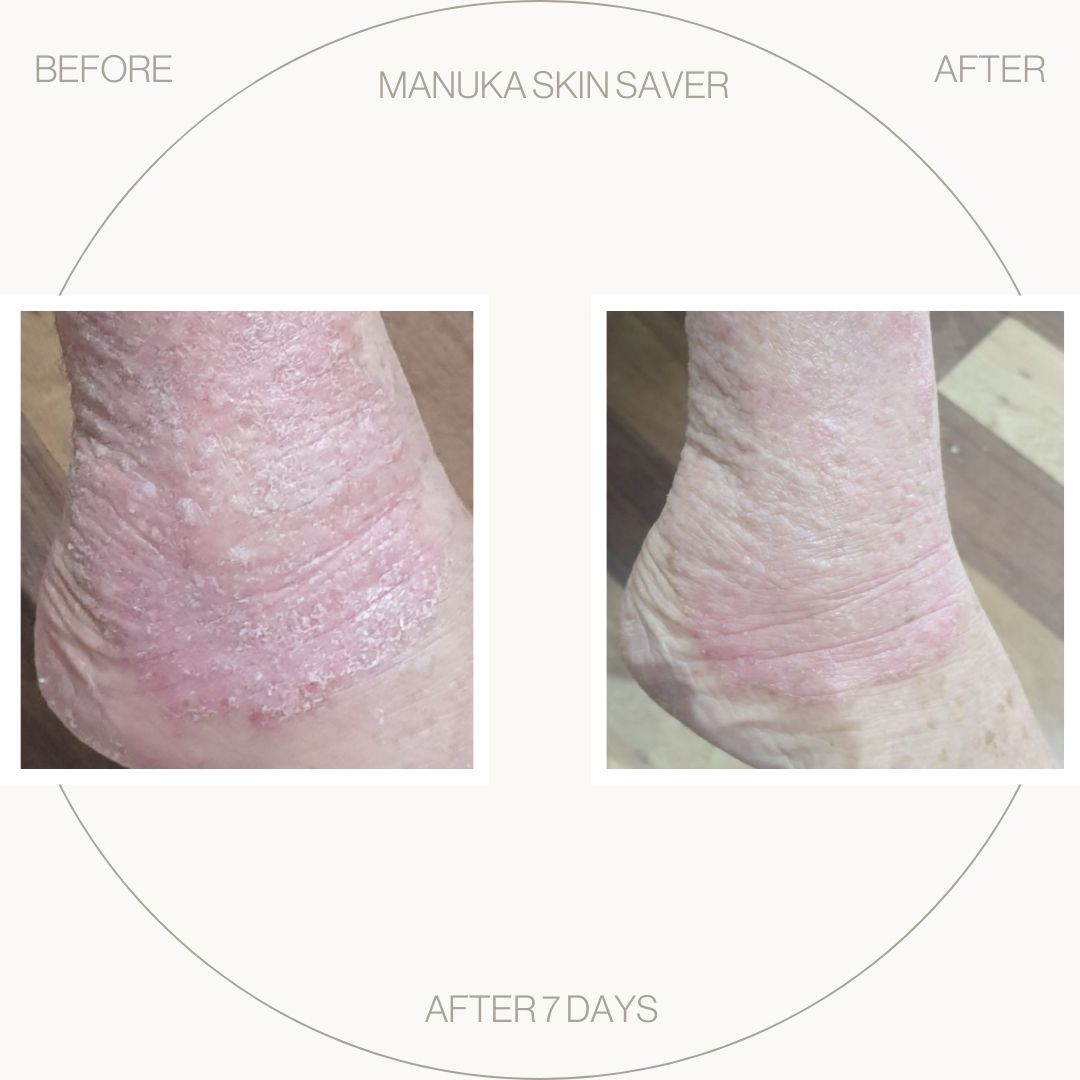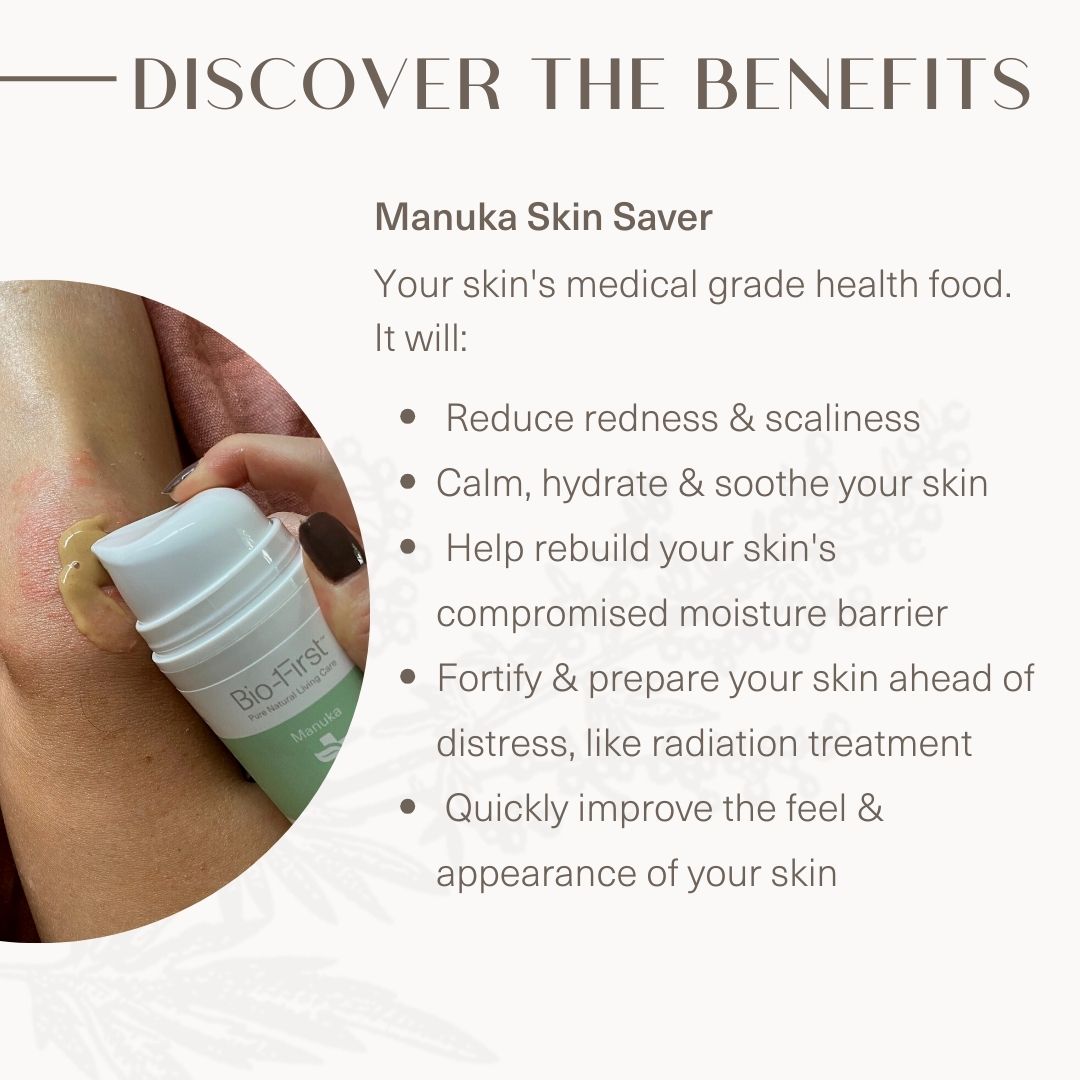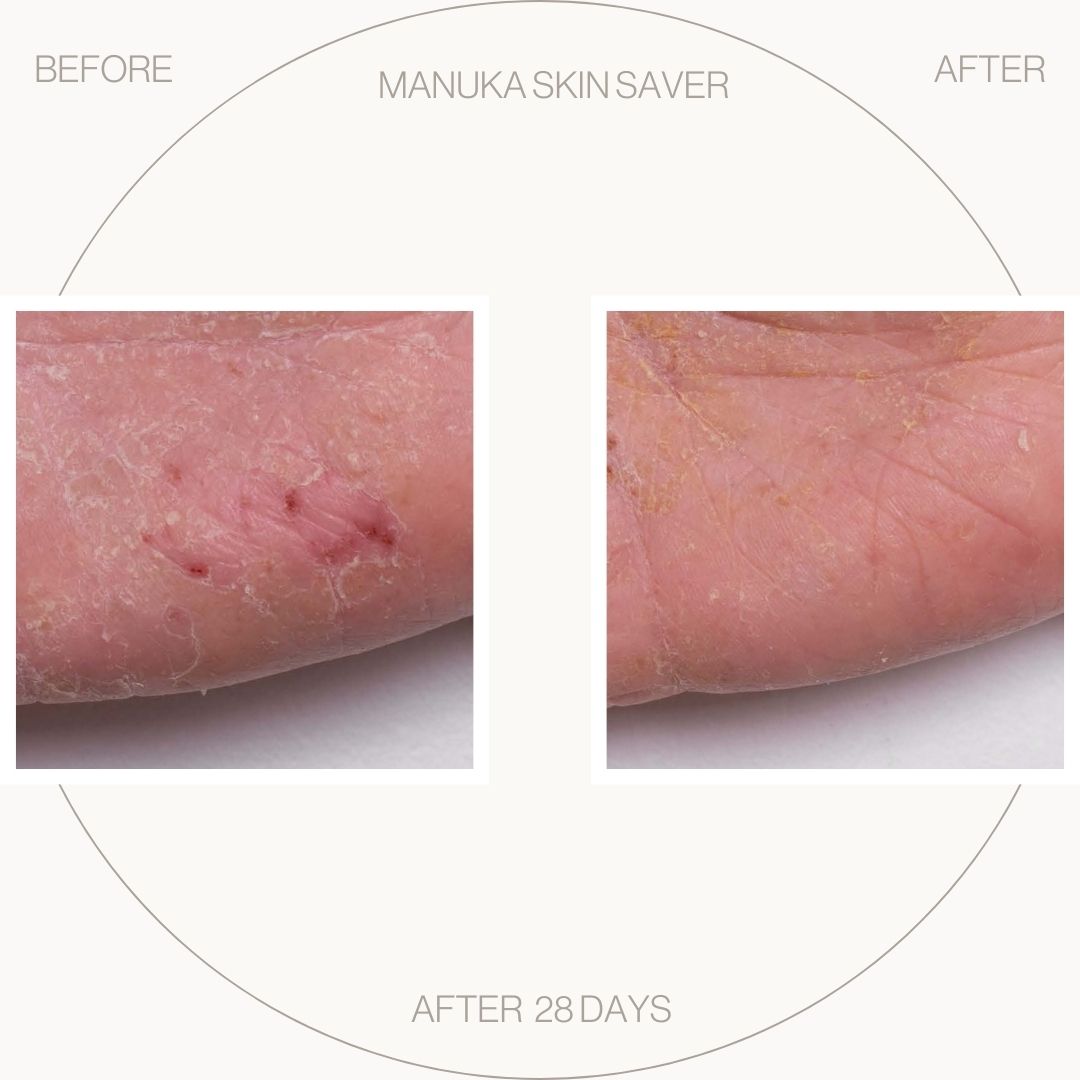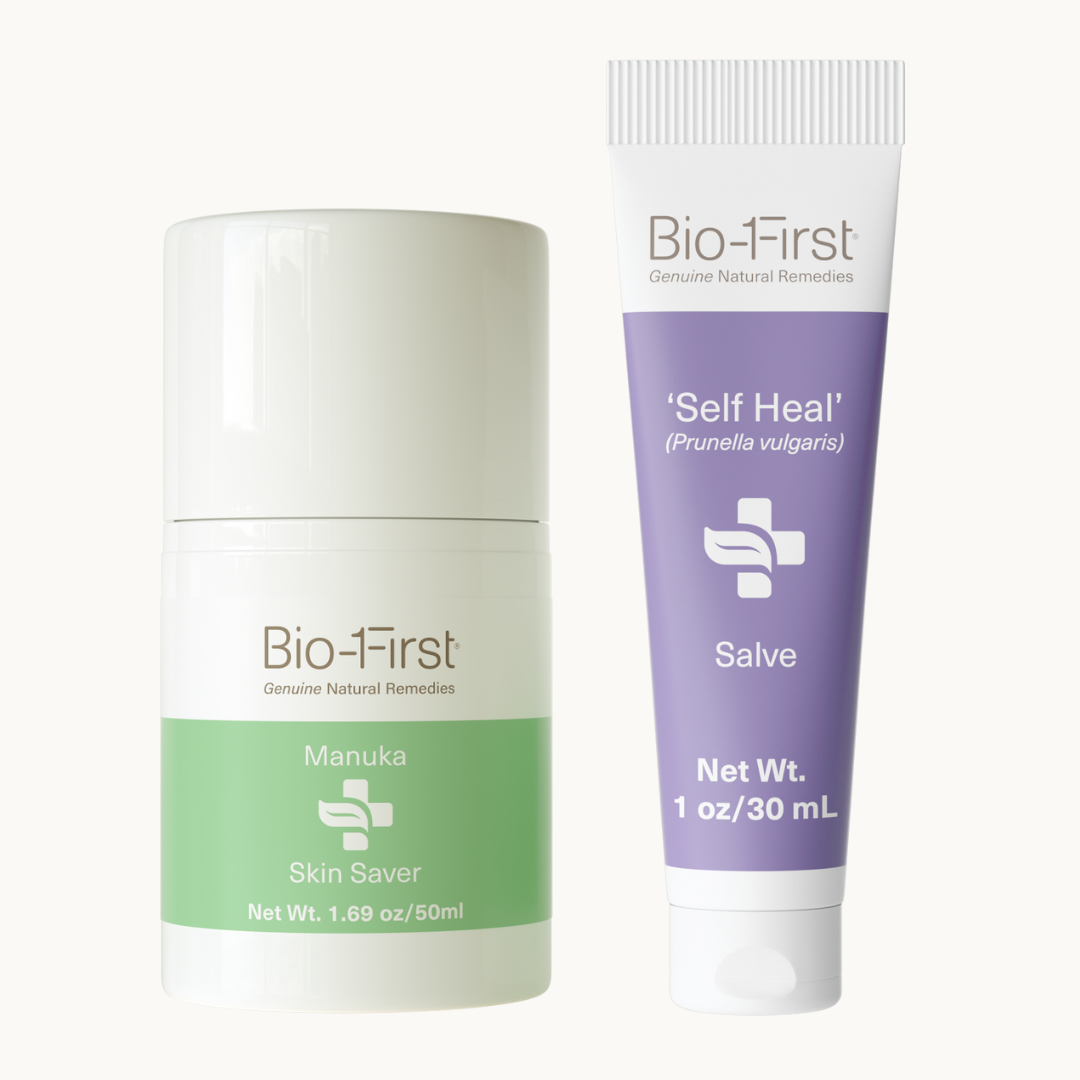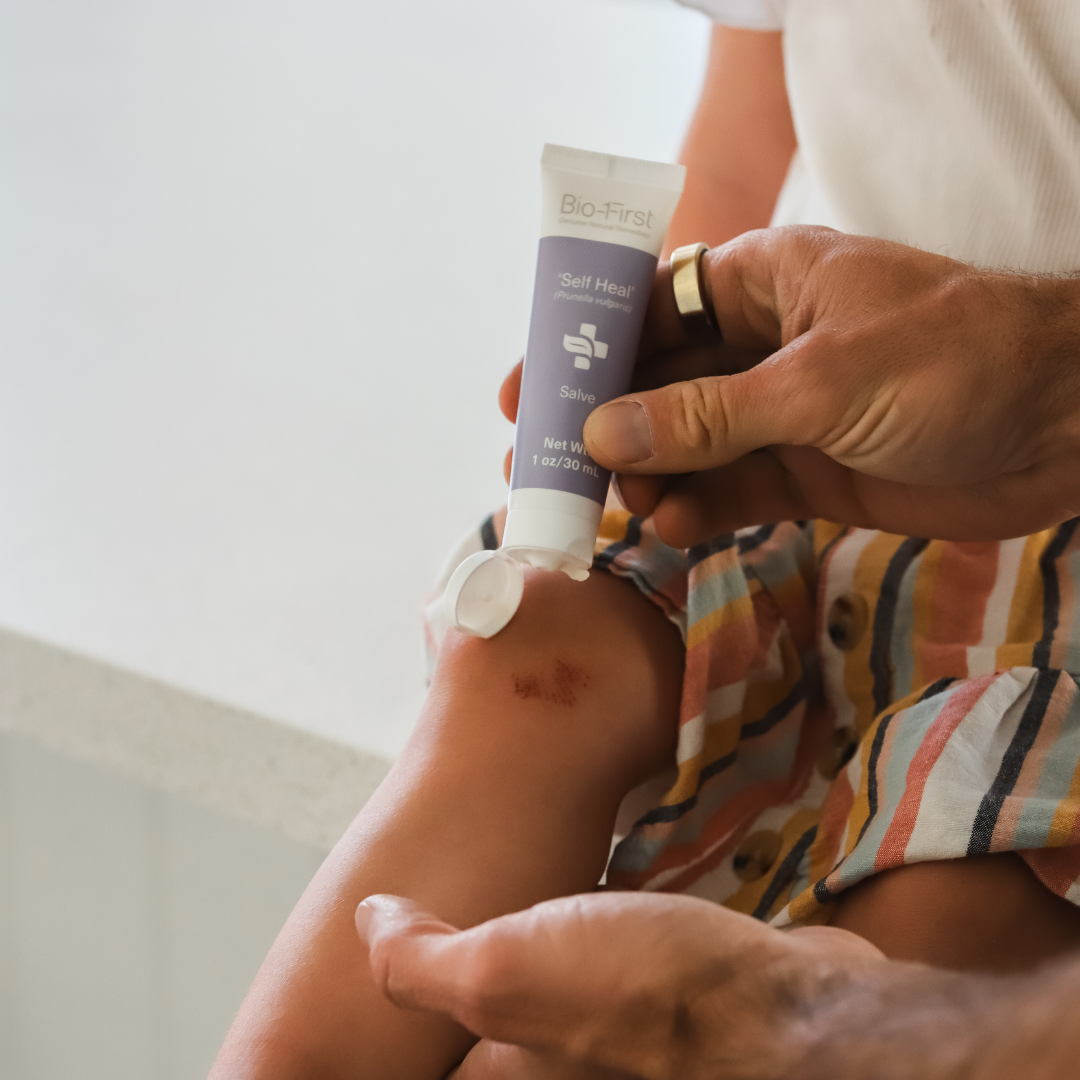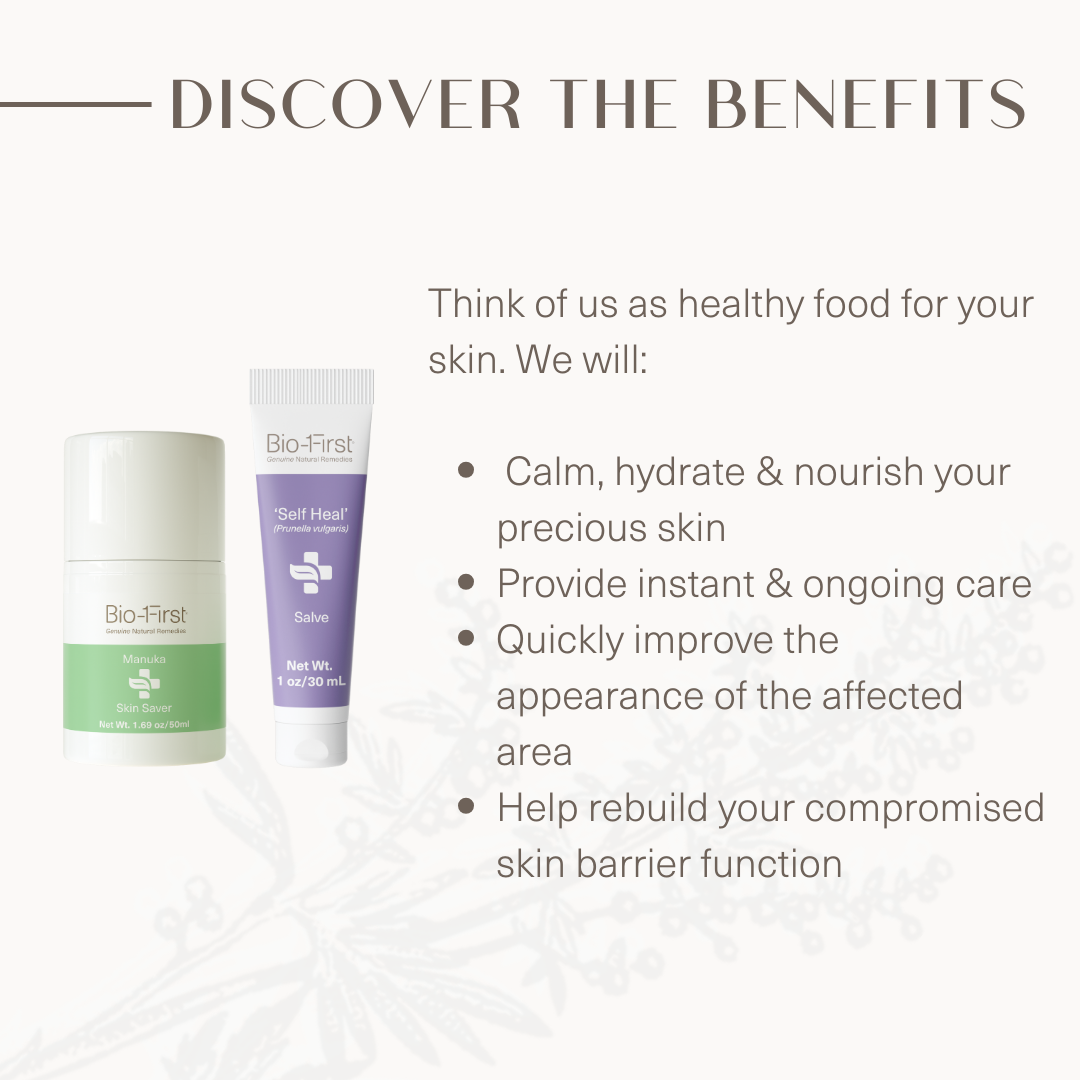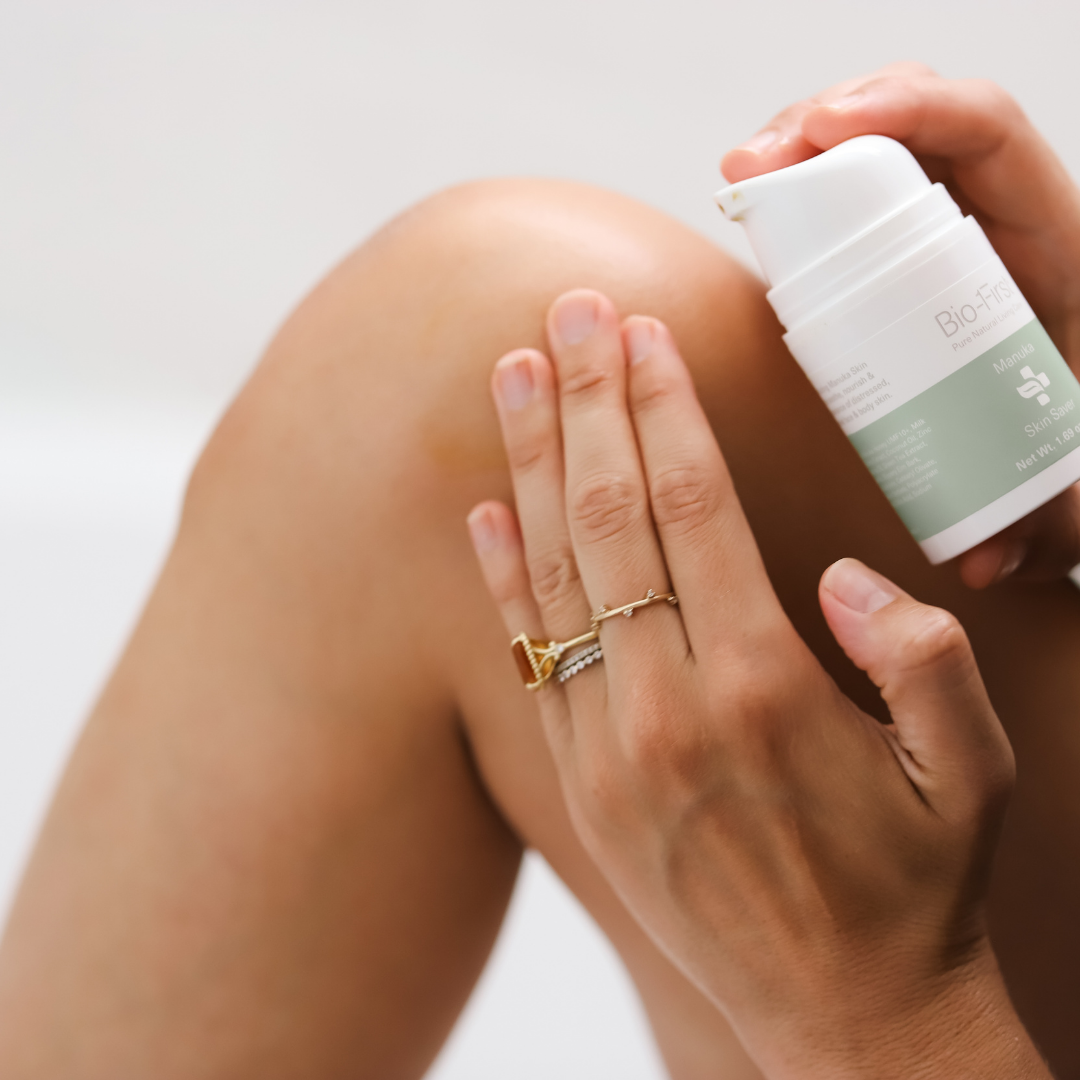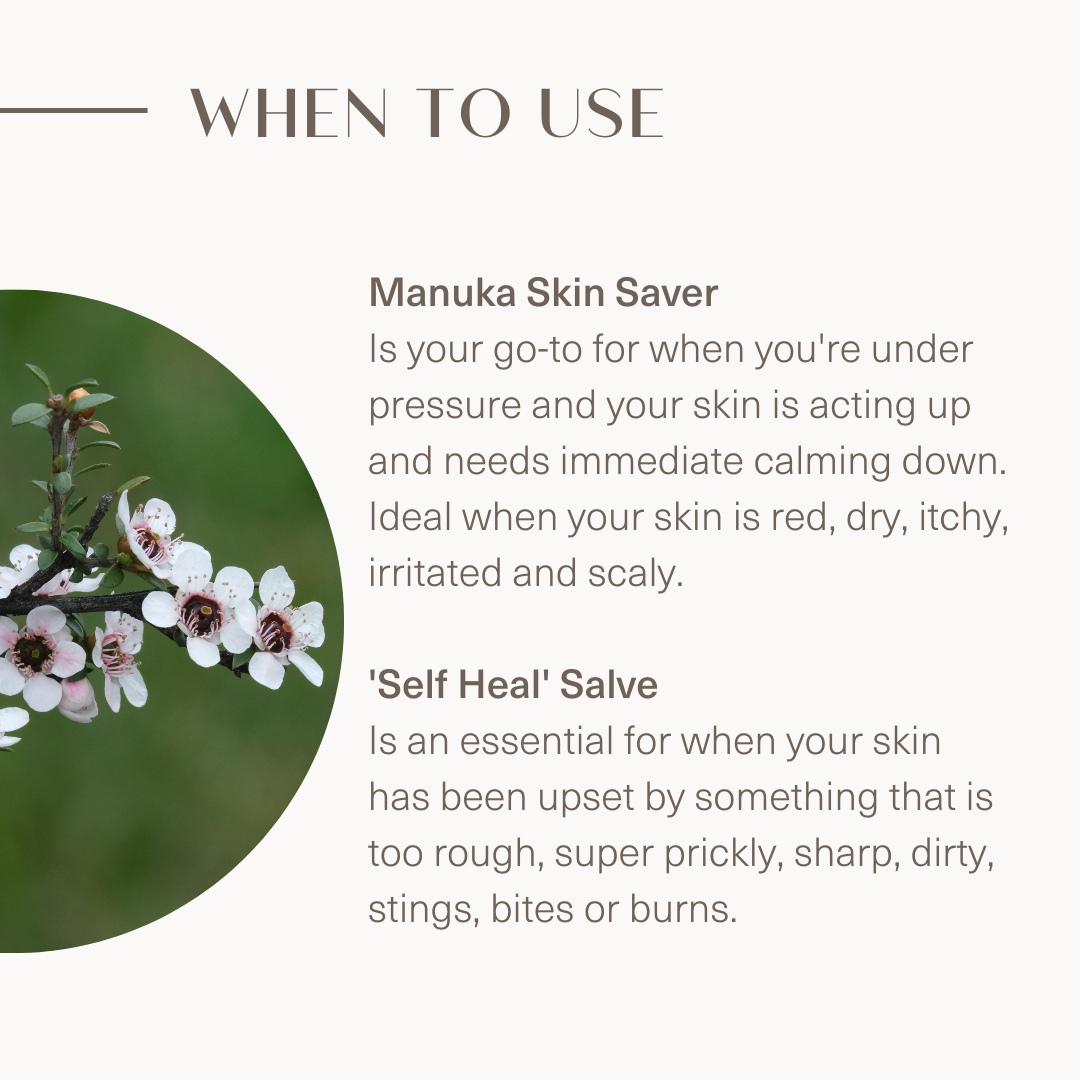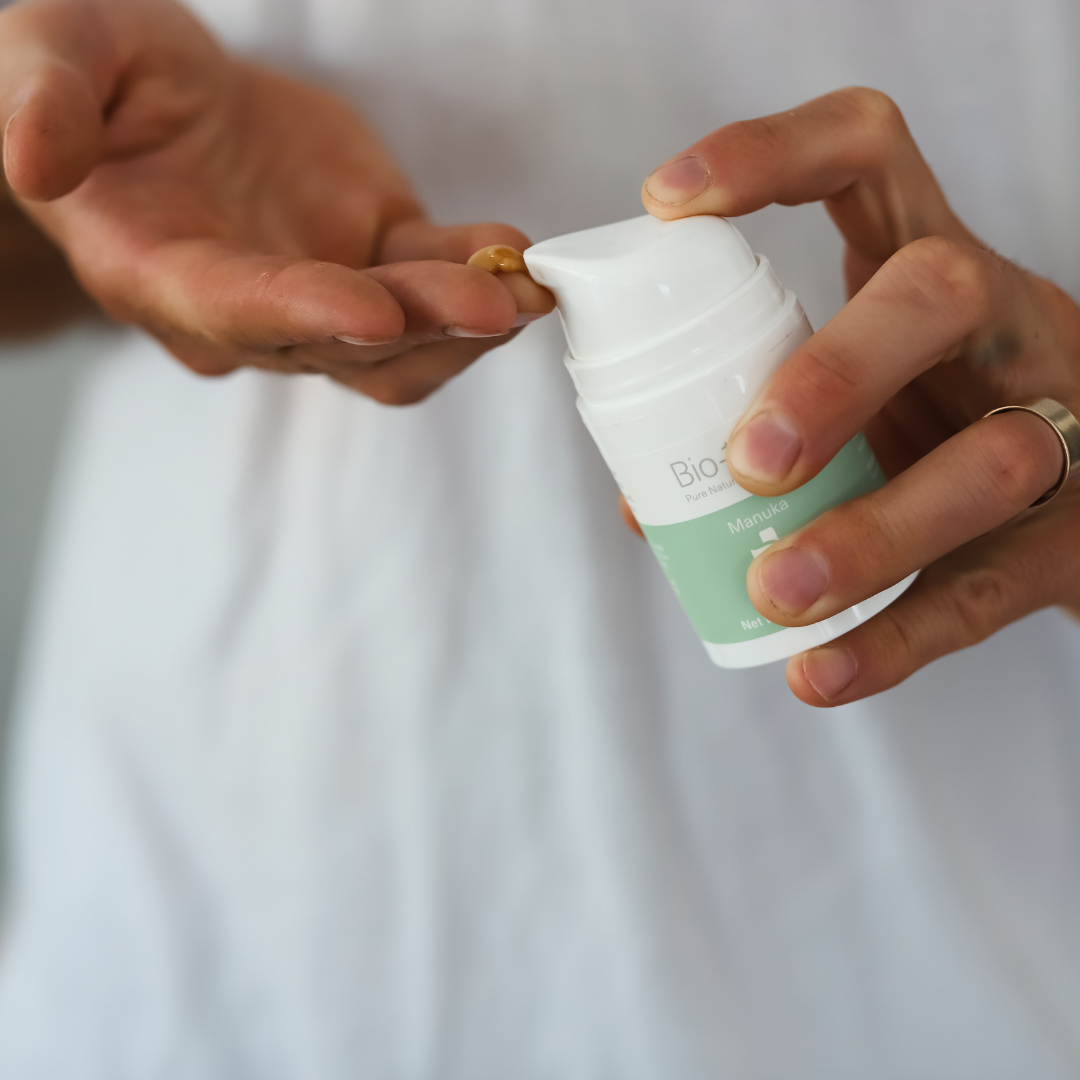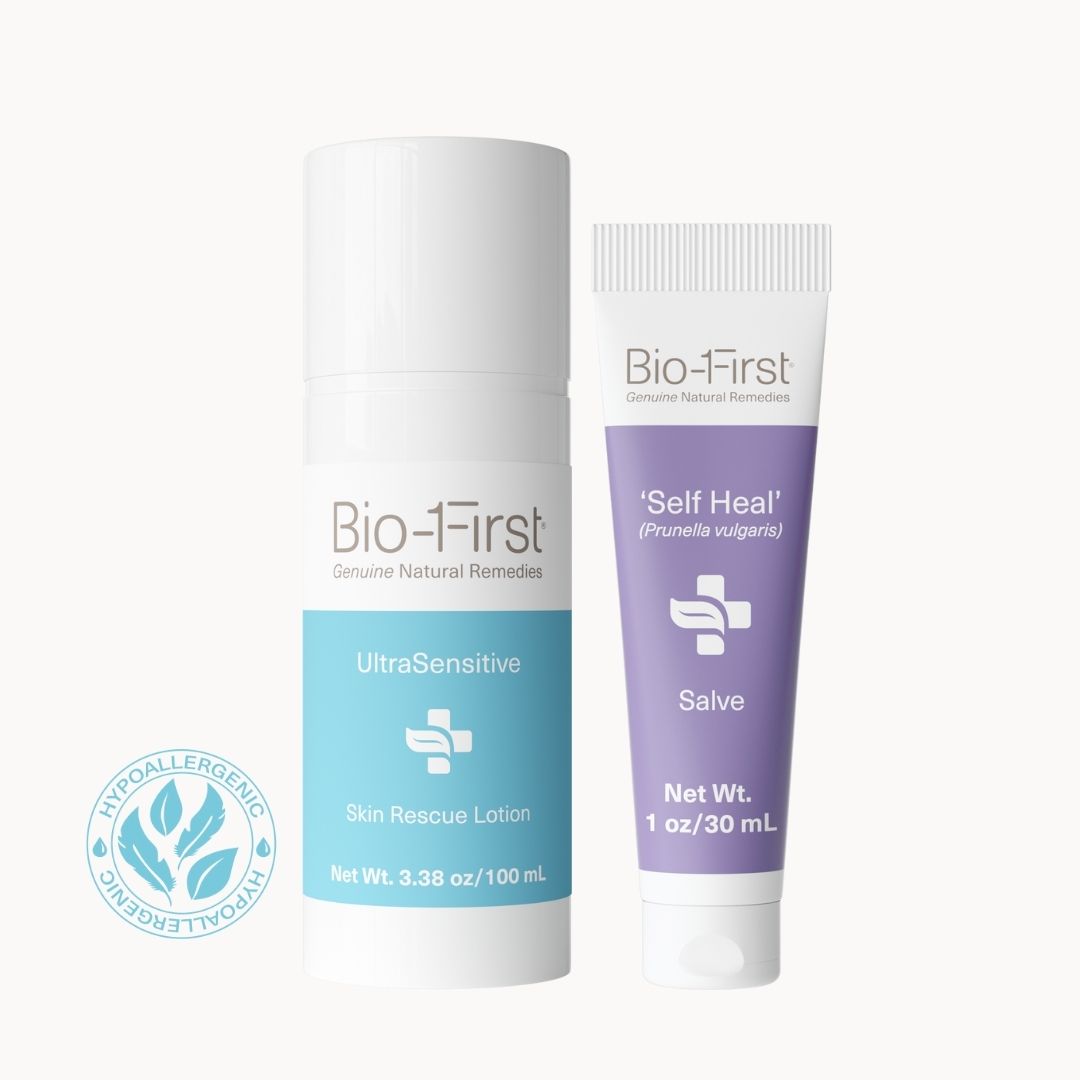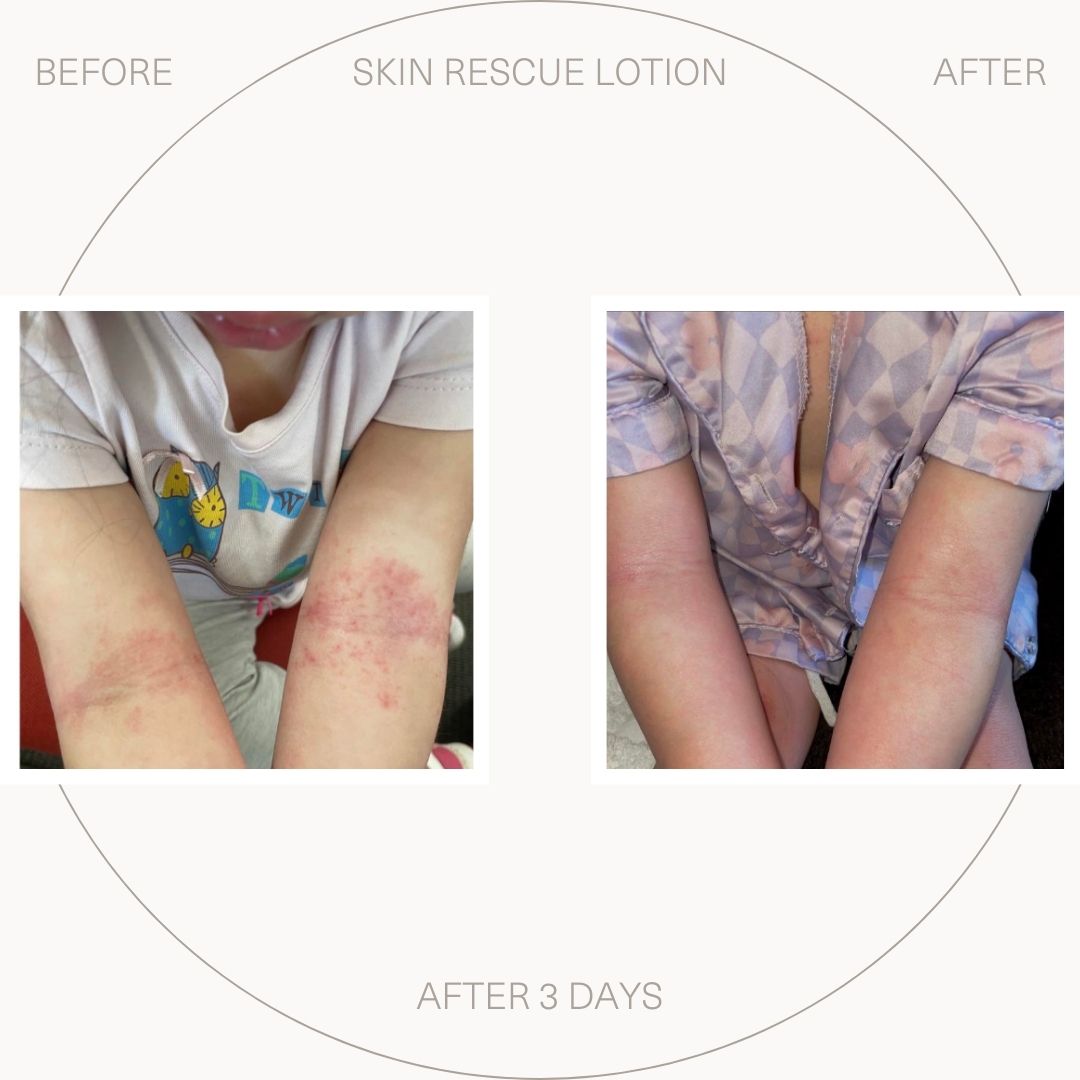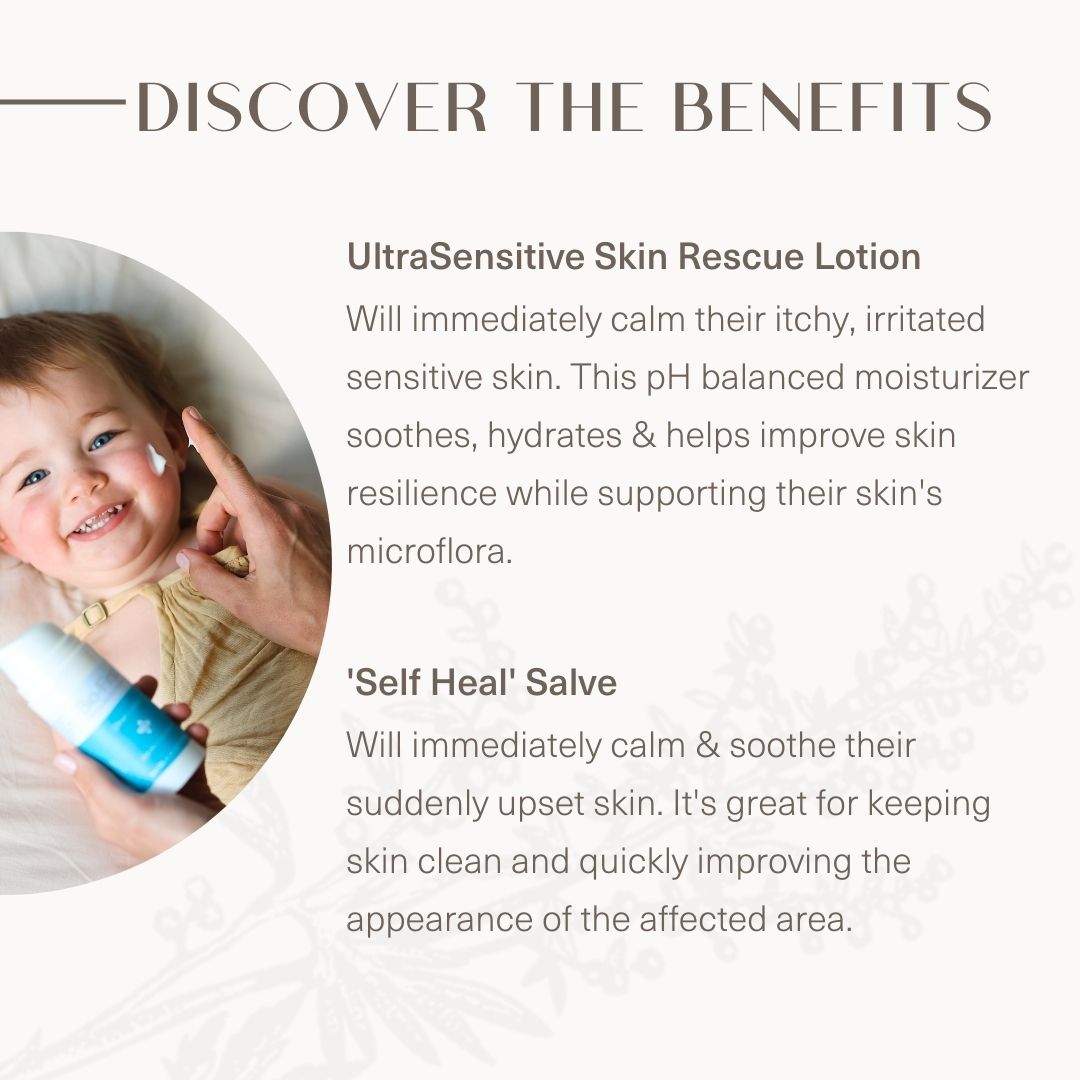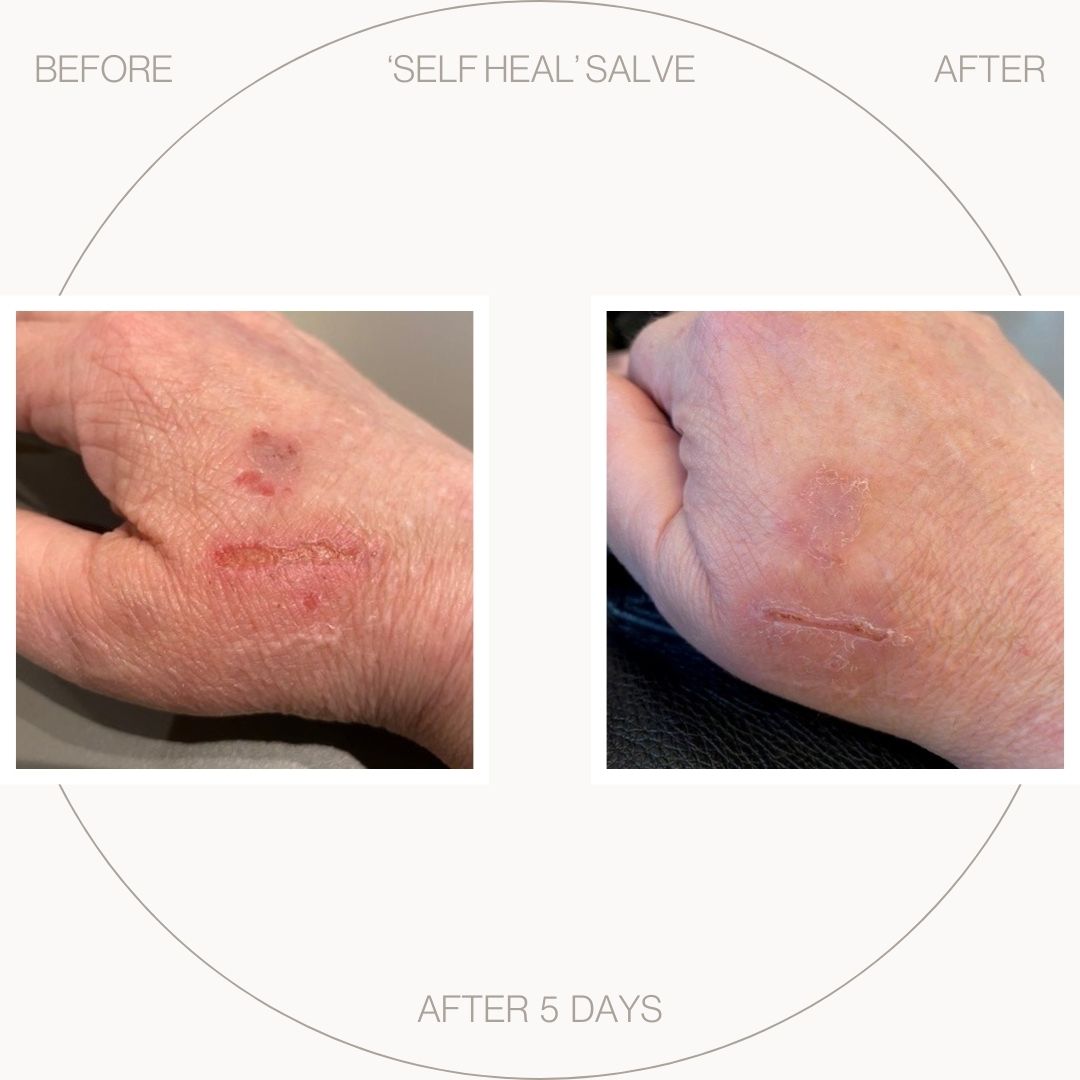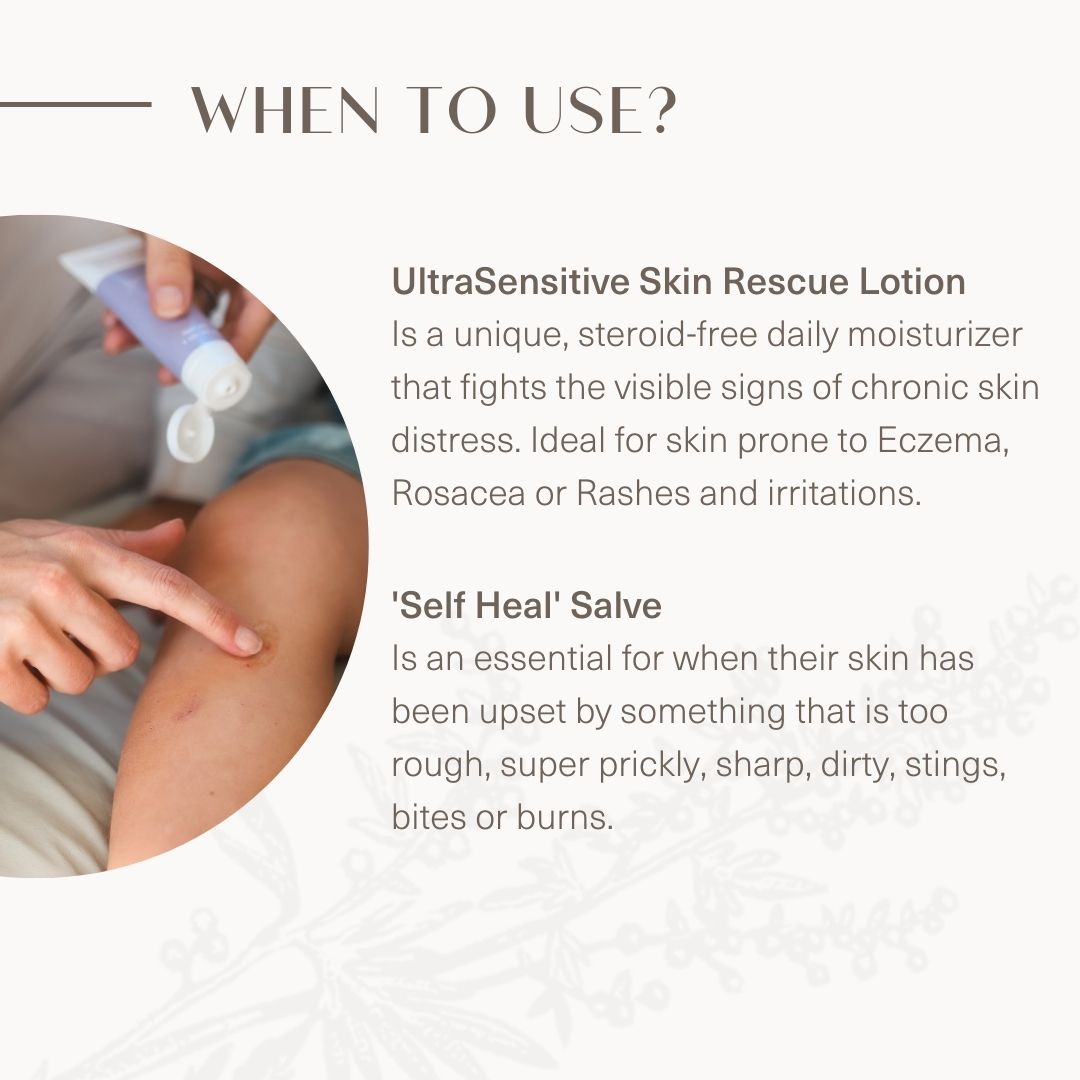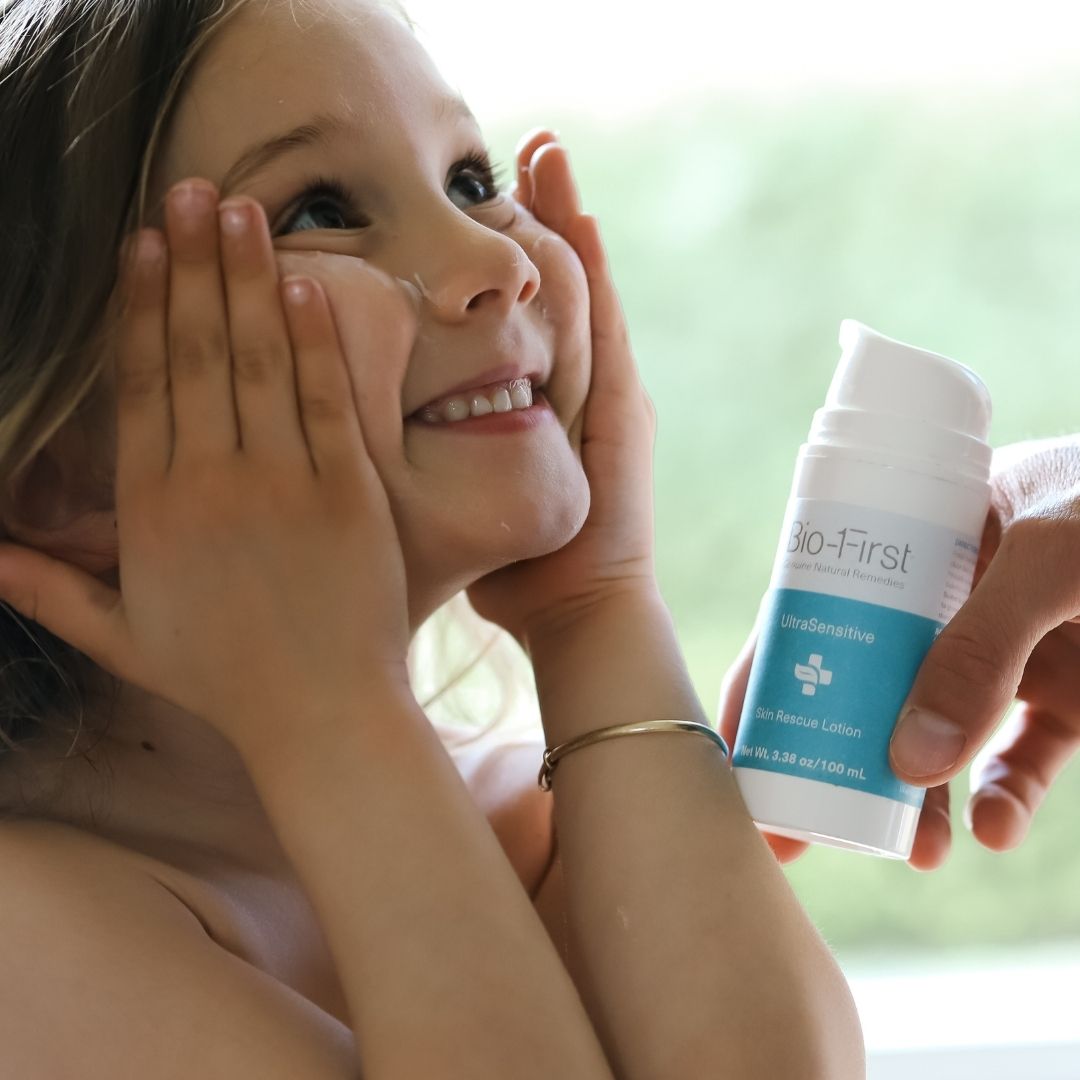Our outer layer of skin is tough but super-thin, it lets some things in and keeps others out. Skin changes a lot during a lifetime and even in a single year.
Many things can cause a reaction of some sort:
- Too much sun exposure
- Very humid or very dry air
- Climate and season changes
- Air pollution
- Plants and allergies
- Foods
- Fabrics
- Illness
- Medicines
- Treatments
- Cosmetic procedures
- Chemicals
- Skincare products
Let’s focus on the last one, skincare products.
What are the main causes of skin reaction?
- Poor formulation
- Harsh or known irritant ingredients, excessive preservatives, artificial fragrance, alcohol etc will disrupt the skin’s microbiome making it vulnerable to upset
- Ingredient allergy
- Some people have allergies to certain substances and compounds whether natural or synthetic. One or more of these in a skincare product will cause a reaction that is either immediate or develops with regular exposure. To complicate matters, we can have skin allergies as children that disappear later, or sensitivities that appear late in life
- Wrong product
- using an oil based waxy emollient on oily skin will make it bumpy and clogged, while using astringents and alcohols on dry skin may result in red scaly patches
- too much of a good thing is extremely possible in skincare. Anti-acne, anti-aging, anti-itch products for example often contain potent ‘actives’ which can irritate if over-used or combined
- Abrasive scrubs and cleansing brushes
- these can create micro cracks in the skin surface that compromise our all-important skin barrier, causing damage and susceptibility to upsets
- Personal sensitivity
- very tricky and highly individual, skin sensitivity can be inherited, life-long, ethnic, disease-related, temporary or variable. Each case is different but they all require hypoallergenic skincare free of perfumes and all common irritants, with only micro amounts of ingredients needed to keep the products safe for use
So how do I avoid a bad reaction?
- Know your skin well from experience both good and bad, family history, and general health
- Match skincare products to your skin type
- Look for sensitivity-rated products
- Patch test before use on a small area to see if you have sensitivity
- Study all ingredient listings
- Use Think Dirty and EWG Ingredient Checker for rankings of everything in a formulation
- Work out what you’re sensitive or allergic to
- Be cautious with niacinamide, retinol, vitamin C, salicylic acid and lactic acid. Test by using in small amounts over a few weeks
- Stick to simple sunscreens with only titanium dioxide or zinc oxide actives
- Take care with new routines and products by introducing gradually to monitor for any reaction
Help! What if my skin has reacted?
- Try to identify the cause and stop using it
- Consider if a food, drug, therapy or herbal medicine could be the problem
- Consider if illness or disease is the issue
- Switch to completely simple skincare while the reaction settles, ie hypoallergenic lotion
- Freshly cut and skinned Aloe Vera applied to affected areas can be soothing – unless you’re allergic to Aloe!
- Be patient – give your upset skin time to settle and re-introduce very low irritant formulas gradually

Blogs on similar topics:



